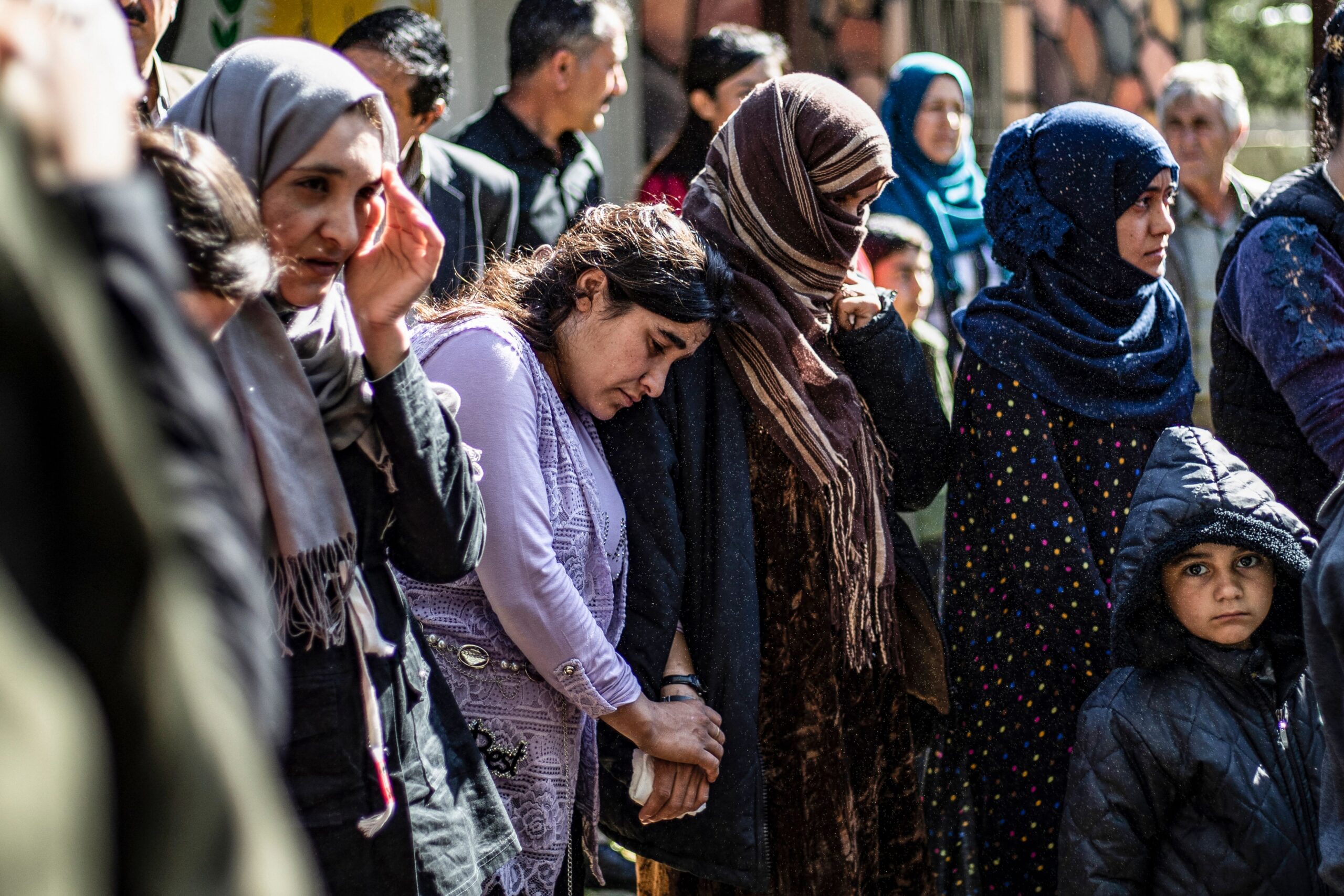Before dawn on the morning of August 3, 2014, heavily armed fighters from the Islamic State group (IS) swept across the Sinjar region in northern Iraq, taking over the Yazidi homeland and embarking on a campaign of genocide against the ancient religious minority. In a matter of days, thousands of men and older women were massacred.
Roughly 6,000 younger women and children, some scarcely older than nine, were taken captive and repeatedly beaten, sold in marketplaces and sexually enslaved.
In all, nearly half-a-million Yazidis — an estimated 90 percent of the group’s population in Iraq — were forced to flee their homes to live in Kurdistan refugee camps. They were released years later, as Kurdish and Yazidi militias liberated IS-held areas between 2017 and 2019.
Since then, Yazidi civil society, international organizations and high-profile lawyers such as Amal Clooney have spent years doggedly trying to hold IS fighters accountable for their crimes.
Yet as the 10th anniversary of the genocide approaches this weekend, rights groups say there has been little justice for those who suffered, particularly women and girls. And the community remains impoverished and largely displaced, struggling to chart a future in Iraq.
“Unfortunately it has been 10 years, but in Iraq when it comes to justice nothing has been done since 2014,” says Waheeda Omer who fled Sinjar when she was 19-years-old and now works for the Free Yezidi Foundation (FYF), a nonprofit. “We feel insecure. We feel that there is no guarantee that this won’t happen again.”
Because IS is designated a terrorist group, its members are more often prosecuted for terror-related offenses, rather than slavery or rape. For the Yazidis, this isn’t justice. Survivors want to face their kidnappers in a court of law, and see the specific crimes committed against them punished.
Internationally, Germany is the exception, having successfully prosecuted eight IS members for international crimes, including three for genocide. Countries such as the Netherlands and Sweden are now following suit, but FYF described this “meager smattering” of cases as insufficient, pointing out that people traveled from over 80 countries to join IS across Syria and Iraq.
In Iraq, there have been no prosecutions of IS members for crimes relating specifically to the Yazidis, says Abid Shamdeen, co-founder of Nadia’s Initiative, a nonprofit that supports survivors of sexual violence and the Yazidi community.
When trials do occur, Yazidis are generally not informed, and the trials aren’t public. Earlier this month, an Iraqi court sentenced to death Asma Mohammed, one of the wives of Abu Bakr al-Baghdadi, the late Islamic State leader, for working with IS to kidnap and detain Yazidi women.
“How did that happen?” asks Shamdeen. “They should have involved some of the women that were held captive by her and her husband. Yet no one heard about [the case]. We just know that there was a sentence. But is it for genocide? Sexual violence? What is it for exactly? That’s the challenge.”
Omer, like many Yazidis, had pinned her hopes on the U.N. Investigative Team to Promote Accountability for Crimes Committed by Daesh, better known as UNITAD. Set up in 2017 to probe into IS crimes, the unit collected thousands of women’s testimonies and contributed to at least three convictions on charges of genocide and other international crimes in Germany and Portugal.
The Iraqi government decided to close the mission this September, saying it was no longer needed. Christian Ritscher, head of UNITAD, told Reuters his team doesn’t have enough time to complete its investigations or create a central archive for the “millions of pieces of evidence” collected. For many survivors, that’s a huge blow.
“We were hopeful that UNITAD’s work will resolve something and that, you know, as long as they’re there, we will also feel protected…” says Omer, who worked alongside UNITAD collecting testimony at FYF. “What is Iraq trying to do? What’s their plan?”
Many are now asking the same questions. Some activists and survivors are concerned the evidence collected by UNITAD will be misused by Iraq, where trials are sometimes as brief as 10 minutes. Others such as Shamdeen fear it’ll simply be sent to storage thousands of miles away in New York.
But justice can take many forms beyond the courtroom, he adds, such as tracking down the roughly 2,700 Yazidis who are still considered missing. Or exhuming the dozens of mass graves left untouched and returning the remains so families can finally identify their loved ones. Or ensuring the roughly 200,000 people still displaced from Sinjar return to a home that is safe – if they so wish.
He also urges the international community not to forget the Yazidis or let women’s testimonies – often given at huge personal risk – go to waste.
“We’re strong …we’re not just silent,” says Omer. “But we’re tired.”



